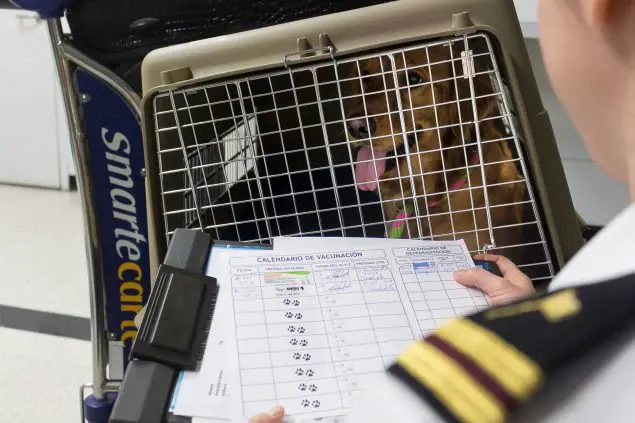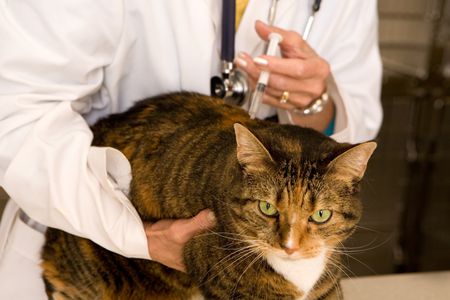If you want to bring your pet (Cats or Dogs) from the United States with you to Costa Rica, you must keep in mind that you will need to meet a series of requirements so that your “best friend” can enter without any problems.

The first requirement that you must comply with is to process a health certificate issued by an authorized veterinarian and backed by the US Department of Agriculture (USDA), the Plant and Animal Inspection Service (APHIS) and Veterinary Services (VS). It is important to note that this certificate must be approved by the APHIS Veterinary Services office of the State where you reside. We recommend using an International Certificate (APHIS FORM 7001) for small animals.
The information that should be included in the International Veterinary Certificate of the dog/cat is breed, sex, color, date of birth and identification number of the animal (if any). Also, the name and address of the exporter and the consignee. Besides, you must specify which means of transport will be used. Last but not least the name and signature of the Official Veterinarian, the seal of the Competent Authority and date of issue.
Requirements to move around the country with your pet.
Below we will mention the requirements that you must have when moving through Costa Rican territory with your pet:

Certificates must be numbered consecutively; each sheet must be signed and sealed. The certificate must declare the existence of annexes and their number, duly signed and stamped with the letterhead of the Competent Authority. The International Veterinary Certificate must be in Spanish otherwise, it must be accompanied by an original official translation into Spanish certified by the Competent Authority. The health certificate must be duplicated. Animals imported in large commercial quantities must be accompanied by an Import Permit. Personal pets (dogs or cats) do not need this Import Permit.
The official rabies vaccination certificate must accompany the health documents and is valid for the vaccination period (1 to 3 years). The supporting documentation of the dog/cat will be reviewed upon arrival in Costa Rica.
Immunization Requirements.
The domestic dog/cat has to be subjected to clinical examination by an authorized veterinary doctor. This exam must be done two weeks before boarding the flight. The animal must have been treated within fifteen (15) days before travel with medications for external and internal parasites, ensuring that they are free of ticks and other external and internal parasites. You must indicate the date of application, trademark, lot number, and the main asset of the treatments.

Domestic canines must be vaccinated against distemper, hepatitis, parvovirus, and leptospirosis. Domestic cats must be vaccinated against rhinotracheitis, calicivirus, and panleukopenia. Dogs and cats older than three months must have been vaccinated against rabies. This vaccine must be valid on the day of your entry into the country. The international veterinary certificate must be noted with the date of vaccination against rabies, trademark, manufacturer laboratory, lot number and expiration date of the vaccine. Puppies (dogs and / or cats) under three months should not be vaccinated against rabies; however, the vaccination plan must be certified according to age and species.
Other requirements.
It is important to know that depending on the duration of the stay in Costa Rica, your pet may or may not need additional documentation to the ones already mentioned to enter the Costa Rican territory. There are several additional measures if the animal enters the country and its stay is extended beyond the validity of the US Health Certificate (30 days by APHIS Form 7001) or rabies certificate, after that the pet will need a valid Costa Rican Health Certificate or a Vaccination certificate.
If animals enter Costa Rica for commercial reasons or are sent as cargo, or the owner has two or more large breed dogs, the animals go directly to a customs warehouse and will need all the documentation previously mentioned, in addition, to require an Import Permit (a Health Health Permit) from the Animal Quarantine Offices (SENASA – Animal Quarantine Department), as well as the need to comply with the necessary customs procedures (this is done by the customs agents).
We recommend that you contact a trusted Costa Rican veterinarian who will be responsible for all the necessary authorizations with the Ministry of Agriculture to obtain the import/export permits.
The Animal Quarantine Offices SENASA is located in Barrial de Heredia, Jardines Del Recuerdo, 2 kilometers west, and 400 meters south, Heredia. Telephone: 2260-8300 ext. 2024 or 2093 or 2260-9046.
It should be noted that animals are well cared for and protected in customs warehouses, so do not be afraid since they are in good hands. This Import permit costs approximately $20. Finally, it is important to know that airlines may have separate requirements and costs to those mentioned above, which is why we recommend checking with your trusted airline to determine what additional requisites they may have.

